When available housing inventories become low in Northern Virginia, available homes will usually receive multiple offers. If the home for sale is in good condition, located near major transportation routes and commuter lots, and supported by sought after schools, it is almost certain it will receive multiple contract offers. Every multiple offer scenario is different because it involves different purchasers, homeowners, real estate agents, and residential properties. This article intends to provide multiple offer strategies while buying homes and provide guidance through the process of competing against other prospective home buyers to own your next home. The items listed below include often used approaches during almost all multiple contract negotiations.
(1) Waive appraisal contingencies. We listed this first because this approach is the biggest risk. As a buyer you must be in love with the home you are trying to buy to use this strategy. We have advised past clients this is a consideration after we have completed a comparative market analysis of the home, and estimate our asking price as clearly under value based on current market conditions. But this approach can be like buying a promising stock. There is always a variable involved such as the assessment of an appraiser. If an appraiser values the property above the contract price, the buyer will be required to find more financing or pay the difference in cash.
(2) Waive the home inspection. It’s listed second because of the level of risk. As a buyer you should consider waiving the home inspection only when documentation is available verifying the home has received regular maintenance and inspections, and your real estate agent uses a licensed residential building expert to conduct a walk-through inspection of the home offering a professional opinion of the overall condition. But you’re not clear of hazards yet. The appraiser inspecting the home will note any deficiencies requiring repair before your bank will agree to approving your home loan. If this occurs after waiving a home inspection, you are now faced with paying for any necessary repairs on a home which you do not yet own. On rural homes this includes any defects found during a well and septic inspection.

Long & Foster Realtors Associate Broker Maryanne Moyers (right) works with Ryan Home Sales Associate Lauren Keeler (center) to negotiate floor plans and pricing for a client at a Ryan Homes subdivision in Stafford County. Lauren was representing home sales for Ryan Homes at Liberty Knolls (Courthouse Road), Southgate (U. S. Route 1), and Lake Estates (Mountain View Road). Contact Maryanne and let her knowledge and experience guide you through purchasing homes by builder contracts and regional purchase agreements.
(3) Increase the earnest money deposit. Larger deposits send a message to the current homeowner of the level of interest you have to buy the home. During a competitive market, if we are informed of multiple offers, and presented with a multi-offer form from the listing agent, we tell our clients of the option to increase the deposit (depending on the home) to $5,000 or more. We usually encourage deposits between $1,000 – $2,000 on homes less than $400,000. Larger deposits accompanying a competing offer can be the difference in winning or losing a home to a competing offer. But hazards exist with every strategy to compete with other offers. If you waive the financing contingency in your offer, and fail to qualify for a loan, you can be required to give up your deposit. The risk of losing a deposit doesn’t end with obtaining financing. If the homeowner feels you failed to exercise diligence as required by the contract, your deposit could be history. We don’t usually see this occur during real estate transactions. But larger deposits are naturally the target of litigation since pursuing them is worth the time and efforts of the homeowner.
(4) Use an escalation clause. After submitting a contract and learning of multiple offers, we tell clients to consider using an escalation clause. It is the technique real estate agents use to guarantee the offer by their clients will beat the highest offer of competitors. It may sound like signing an escalation clause limits your control of the bidding process. But it’s the opposite. The escalation clause when properly used allows your real estate agent to set the largest allowed purchase limit. You can also set the amount you are willing to outbid competing offers. We usually recommend our purchasers to set the incremental payment limit at $1,000 over the highest competing offer. This competing price terminates when the offer reaches the set point the buyer feels is too much money to continue bidding on the home. If you outbid other offers the listing agent is required to verify the offering prices of competitors. Once again it is important to stay within the price your real estate agent has found value in purchasing the home. If you bid higher than a comparative market analysis there is a risk of paying more than appraised value for the home.
(5) Use conventional financing. Although conventional financing requires a down payment between 5%-20% of the purchase price it involves less risk to the bank. This allows appraisers to conduct less evasive inspections of homes. This will address fewer repairs necessary to get financing. This should not be lost on listing agents while guiding clients through the selection process of contract offers. We recommend our short sale clients to make the type of loan associated with contract offers a high priority in the decision to ratify the best contract offer. Distressed homeowners selling their homes under short sale conditions have financial problems, and often refuse or lack the necessary funds to pay for lender required repairs. If you buy a home under these circumstances, this will leave you with owning a home which requires some minor repairs. But this is the type of loan a home buyer can use as an edge against competing offers. If the home requires obvious repairs involving considerable costs, then a 203K loan makes the most sense to both parties.
About the author(s): Dwayne & Maryanne Moyers are proud parents, basset hound owners, and full-time experienced real estate agents handling all matters related to residential real estate. Contact us if you need an experienced Realtor in Northern Virginia. Advice is always free.
Related articles

